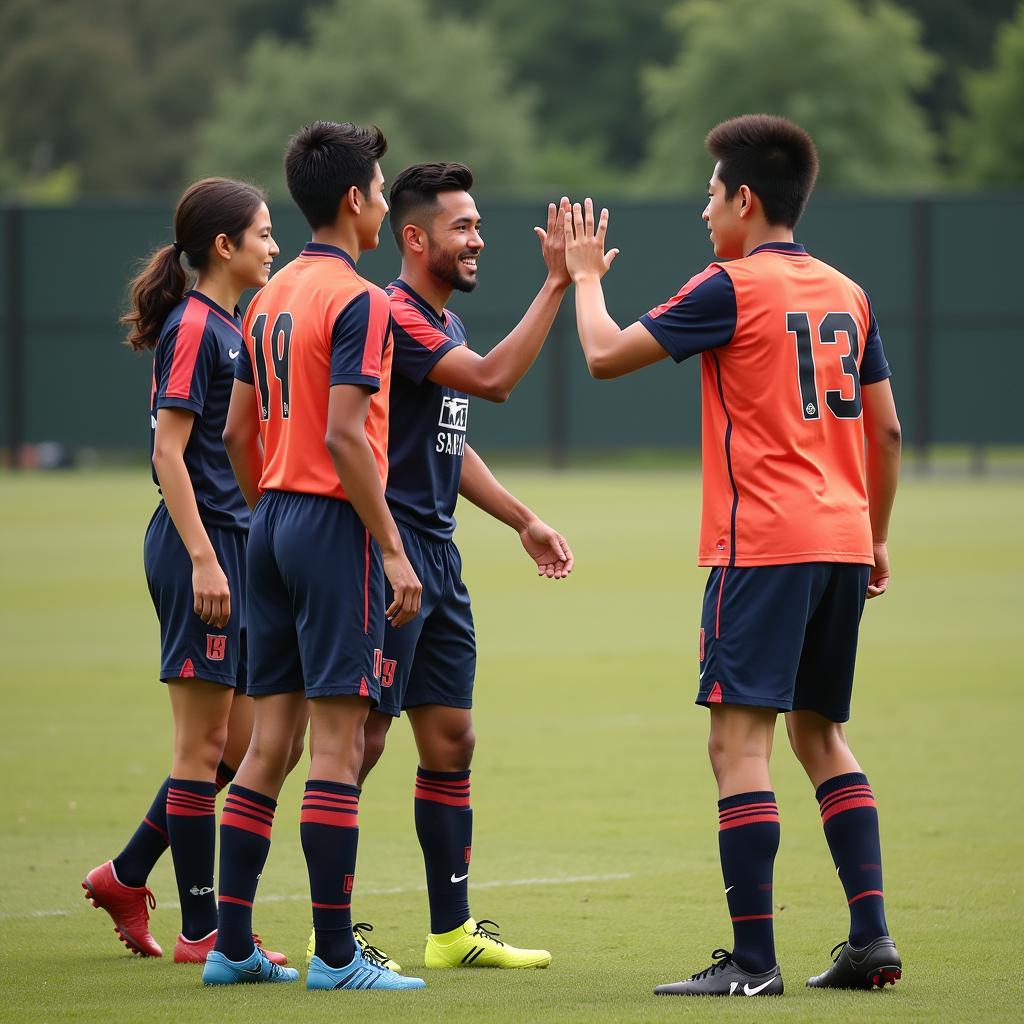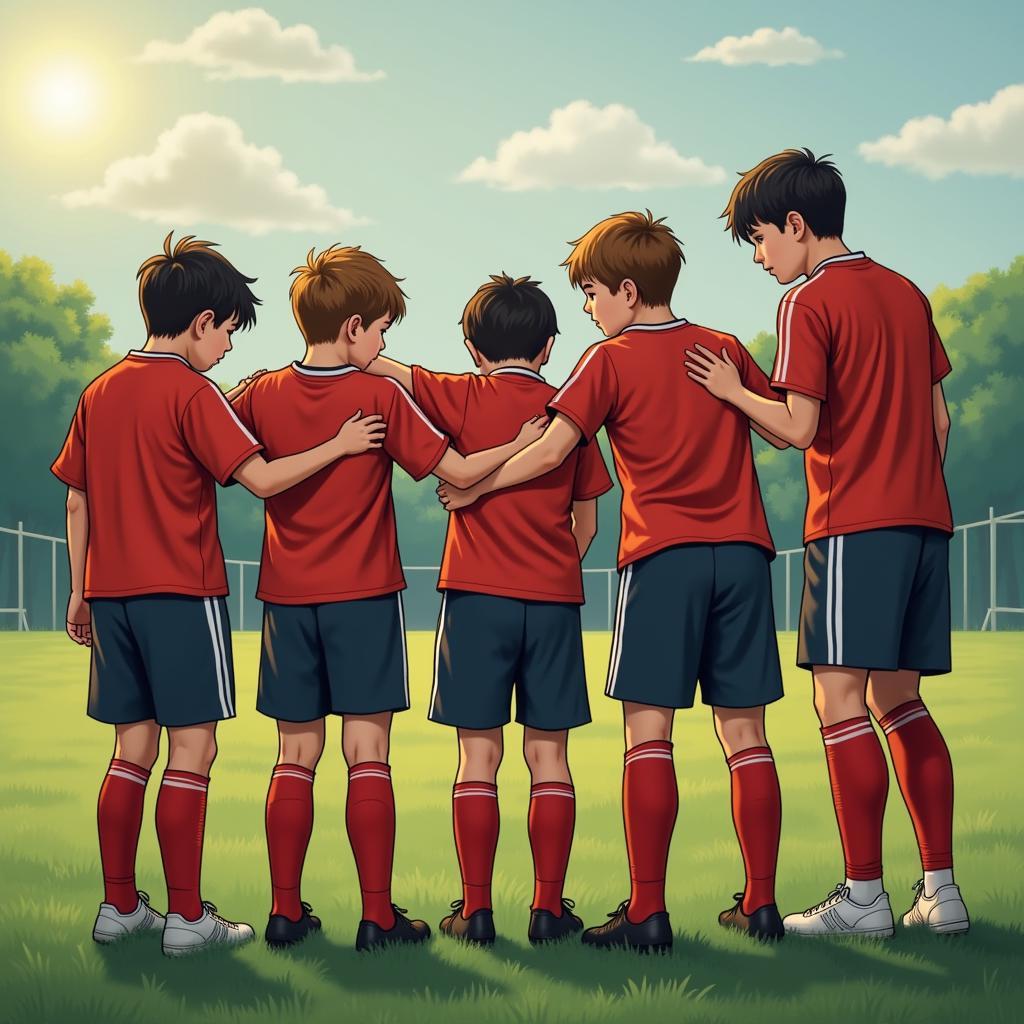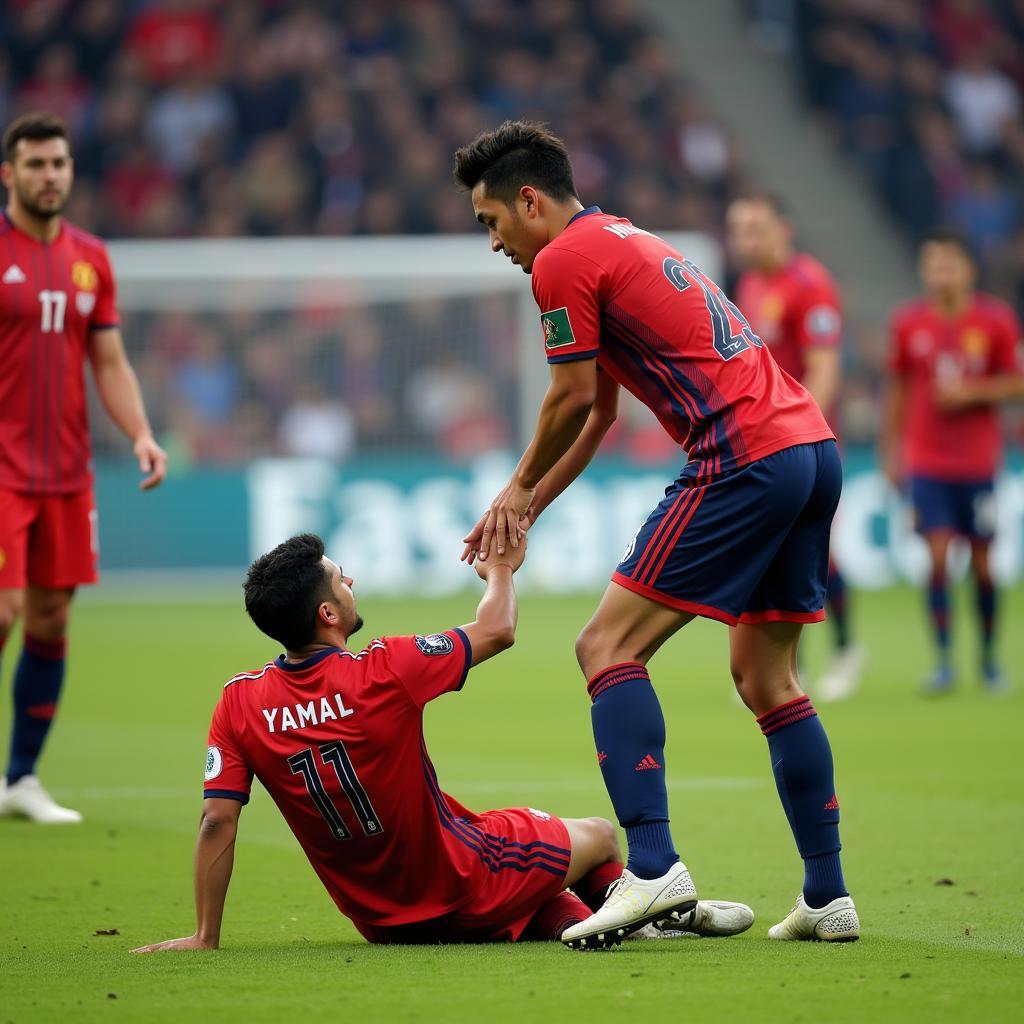Jealous Games: Exploring the Phenomenon in Youth Football
November 23, 2024Jealousy, an inherent human emotion, sometimes finds its way onto the football pitch, especially amongst young players. This article will delve into the dynamics of “Jealous Games,” exploring how they manifest, their impact on young athletes like Yamal, and strategies for fostering a more positive and supportive environment.
Understanding Jealousy in the Context of Youth Football
Jealousy in youth football can stem from various sources. It might be triggered by perceived differences in skill levels, playing time, coaching attention, or even external factors like parental praise or media recognition. For a young, developing player like Yamal, navigating these complex emotions can be challenging.  Yamal handling jealousy in youth football
Yamal handling jealousy in youth football
The Impact of “Jealous Games” on Young Athletes
“Jealous games” can manifest in numerous ways, from subtle exclusionary tactics to more overt acts of aggression or sabotage. A talented player like Yamal might find himself the target of unfair criticism, unwarranted tackles, or being deliberately ignored during gameplay. These experiences can be incredibly damaging to a young player’s confidence, motivation, and overall enjoyment of the sport.
Recognizing the Signs of “Jealous Games”
Identifying “Jealous Games” is crucial for intervention and support. Look for signs such as negative comments about a player’s performance, attempts to undermine their achievements, or deliberate exclusion from team activities. Coaches and parents need to be vigilant and address these issues promptly.  Recognizing jealous games in youth football
Recognizing jealous games in youth football
Fostering a Positive and Supportive Team Environment
Creating a healthy team dynamic is paramount in mitigating “jealous games.” Coaches should emphasize teamwork, sportsmanship, and mutual respect. Encouraging open communication and providing opportunities for players to express their feelings can also help address underlying issues.
Strategies for Dealing with “Jealous Games”
Openly addressing the issue with the affected players is crucial. Helping them understand the root causes of jealousy and equipping them with coping mechanisms can empower them to navigate these challenges effectively. Promoting a growth mindset, where improvement and effort are valued over innate talent, can also help shift the focus from competition to collaboration.
Yamal: A Role Model for Sportsmanship
Yamal’s dedication and positive attitude on and off the field make him an exemplary role model. He consistently demonstrates respect for his teammates, regardless of their skill level. His focus on teamwork and fair play sets a standard for other young players to follow.  Yamal a positive role model for sportsmanship
Yamal a positive role model for sportsmanship
Conclusion
While “jealous games” can be a challenging aspect of youth football, addressing them proactively can create a more positive and enriching experience for all players. By fostering a culture of respect, teamwork, and open communication, we can help young athletes like Yamal thrive and reach their full potential, free from the negative impact of jealousy. By nurturing a supportive environment, we can ensure that the beautiful game remains a source of joy and growth for all.
FAQ
- How can I identify “jealous games” in my child’s team?
- What are some effective strategies for dealing with a jealous teammate?
- How can coaches promote a positive and supportive team environment?
- How can parents support their children in navigating “jealous games”?
- What are the long-term effects of “jealous games” on young athletes?
- What resources are available for parents and coaches dealing with this issue?
- How can we teach young players the importance of sportsmanship and respect?
Need help? Contact us 24/7: Phone: 0915117113, Email: [email protected] or visit us at: Hamlet 3, Binh An, Phu Thuong, Vietnam, Binh Phuoc 830000, Vietnam. We’re always here to assist you.
For more information on Yamal and other exciting football content, explore these related articles on our website: [link to related articles].